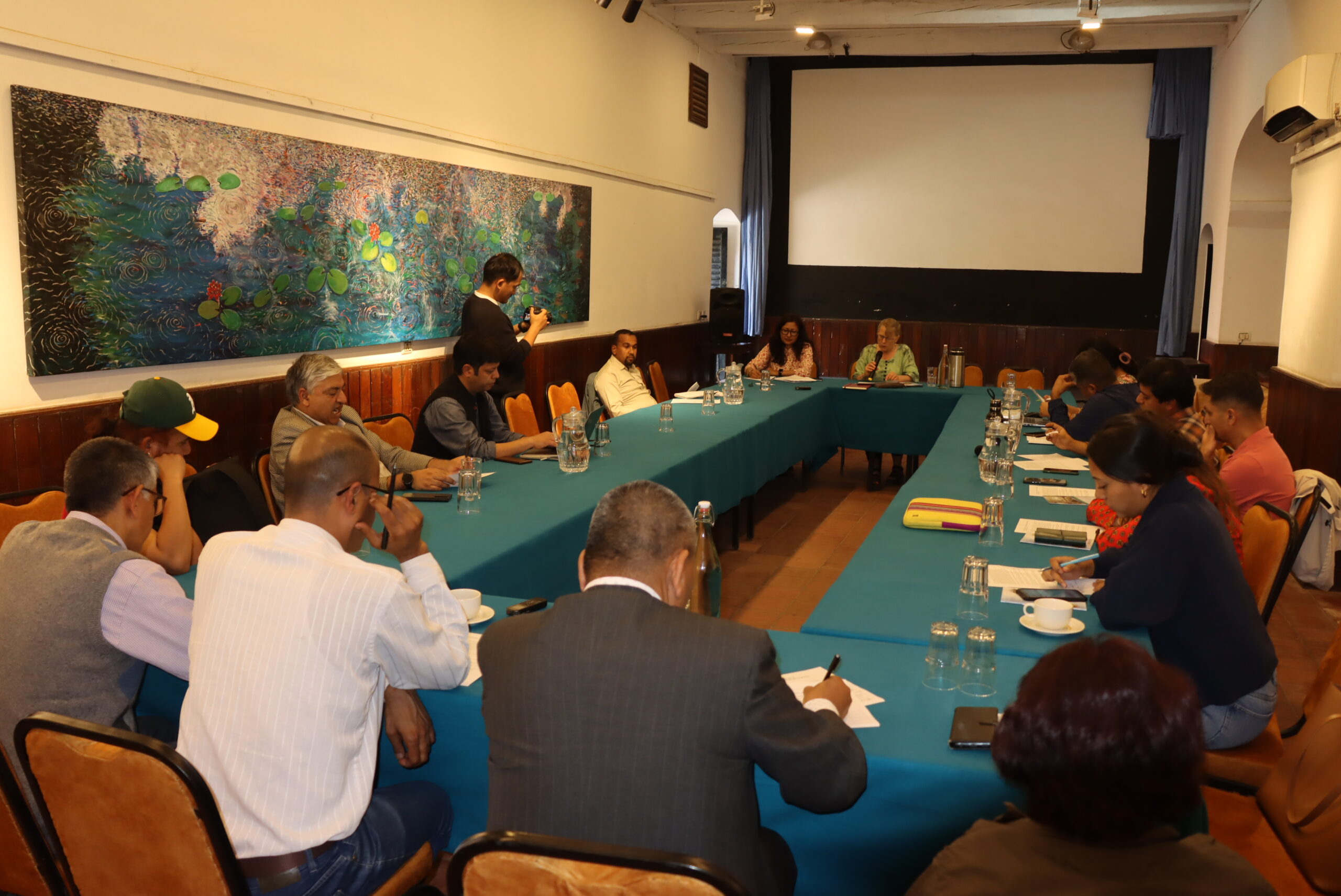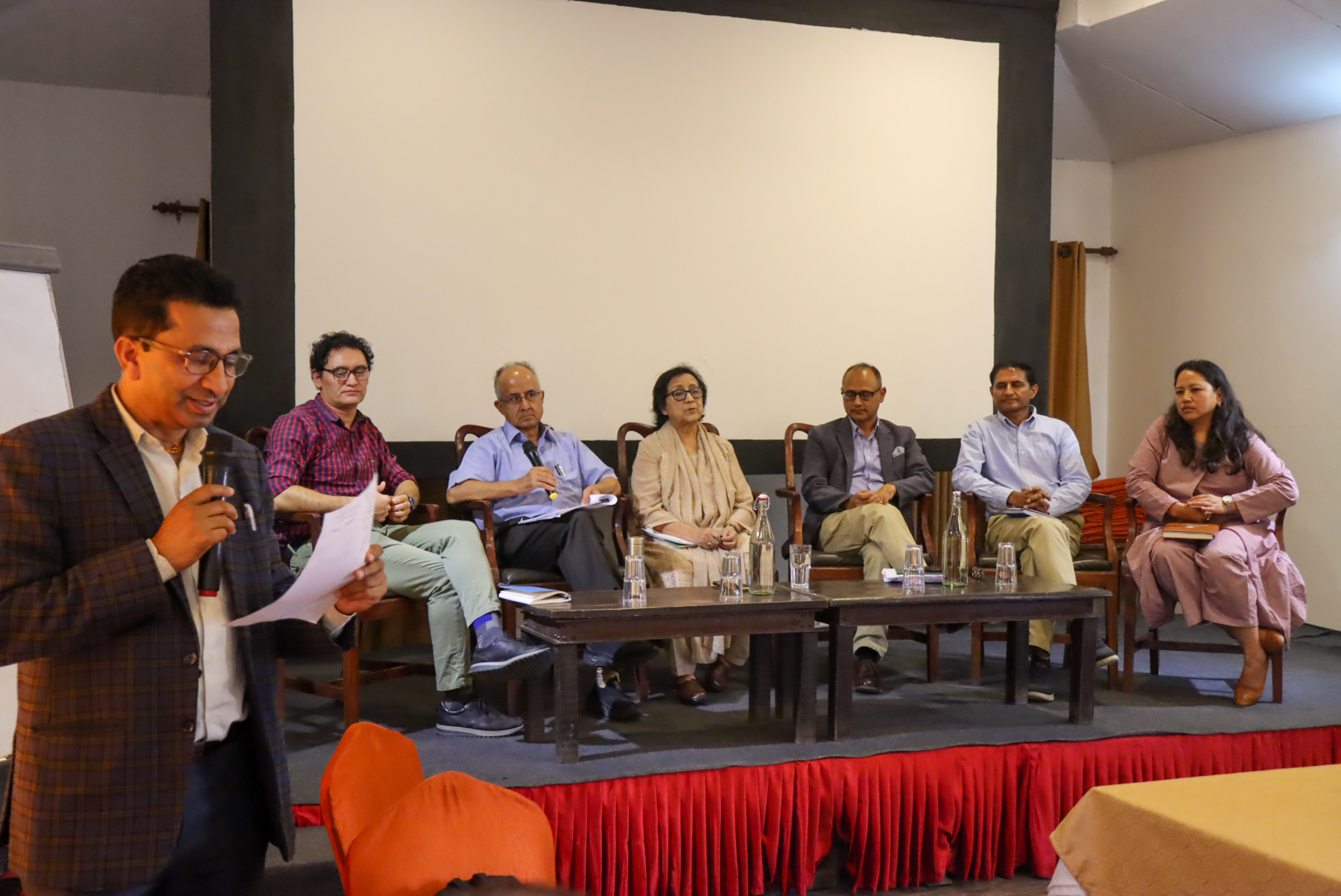A three-day scientific writeshop was held from 5 to 8 March 2018 in Kathmandu in order to strengthen the scientific writing skills for the early and mid career researchers of SIAS (Nepal) and CEDAR (India), the two implementing organizations of Climate Adaptive Water Management Practices and Strategies for South Asian Cities (CAMPS) project. The theme of writeshop was focused on “Research Communication” which allowed researchers to build the skill to decipher the research findings so as to reach out to the policy makers and general public. The workshop not only supported researchers on conceptualizing and drafting policy briefs but also covered range of other research communication tools including storytelling through blogging and OpEds and also through short impact videos.
On 4th of March, a short visit at the Thamel eco-resort was organized to show how private sector can initiate to manage their water usage efficiently. On 5th March, the team went for the field visit in Dhulikhel to see the community managed water systems, construction of the recharge ponds in nearby hills and had discussion with the representative of Dhulikhel Drkinking Water Users Committee. It was followed by the talk of Mr. Krishna Gyawali, the policy advisor of SIAS, on the basics of policy brief and its importance. On the second day (6th march), the policy brief session was continued by Ms. Anu Adhikari, IUCN Nepal. She presented on the IUCN experiences on the making the effective policy briefs. Mr. Ngamindra Dahal, SIAS, facilitated on the brainstorming among the participants to write policy briefs on various topics. The session was then led by Mr. Ramesh Bhusal, Nepal Editor at Third pole & General Secretary of NEFEJ. Mr. Bhusal presented on the “Storytelling of the research findings.” Then, Mr. Binit Bana, an Assistant Creative Director of Amuse Group/Kathaharu presented on “Why and how to focus on the videos.” Mr. Bana also facilitated the group work on finding out what can be the objective, message, targeted audience, time span of the CAMPS video. The day ended with the presentations of Prof. Roshan Man Bajracharya and Dr. Chandra Pandey on Orientation on CAMPS project and Theory of Change for CAMPS respectively. Finally, on day third (7thmarch), a practical exercise was facilitated by Dr. Rajesh Rai after the short presentation on “Cost Benefit Analysis of the Public Project.” Dr. Hemant Ojha, Australia, gave a presentation on the “Theories of Action Research.” As the workshop aimed to produce few policy briefs, SIAS and CEDAR researchers presented the initial outline of each policy briefs. Altogether four policy briefs were envisioned i.e. recharge pits of Dharan, recharge pond od Dhulikhel, private sector engagement in efficient water management, Haldwani-Mussorie CAMPS led by Mr. kaustuv Raj Neupane, Mr. Kamal Devkota, Ms. Suchita Shrestha, Ms. Anvita Pandey/Mr. Prateek Sengupta respectively.




